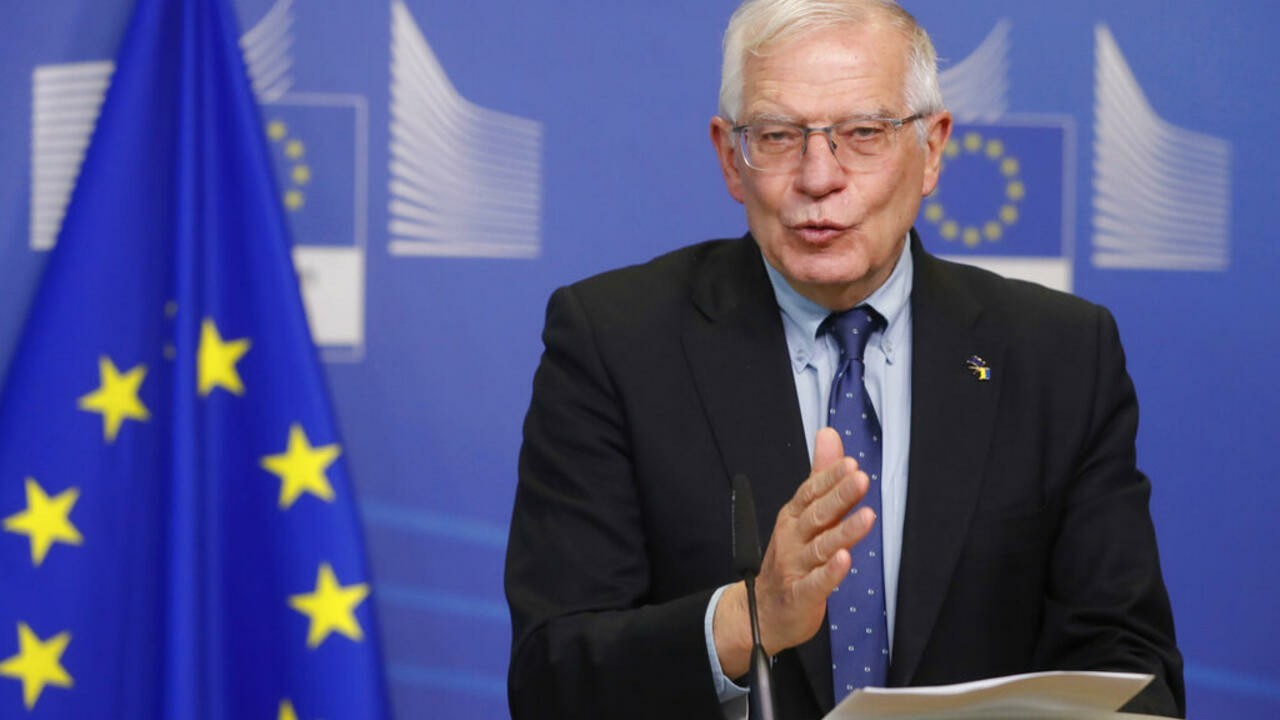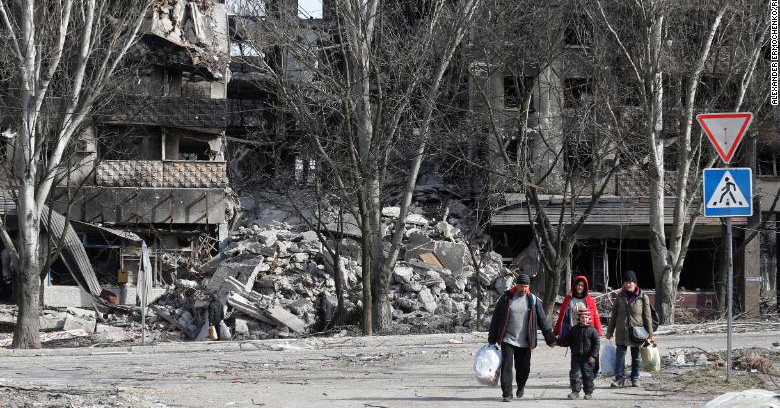Punishment of Russian tycoons: ‘Wise rabbits have three holes’

Solaris yacht of Russian billionaire Roman Abramovich tries to avoid Western sanctions by docking in Turkey. In the photo: Solaris in the port of Barcelona, Spain – Photo: TASS
EU member states actively responded to this plan, but the effect was not as expected because the tycoons always planned many ways to escape as the Chinese proverb says: “A wise rabbit has three holes”.
Like broken salt
After Russia sent troops into Ukraine, the EU and the British and US governments applied sanctions against tycoons believed to be part of President Putin’s clique to freeze the blood vessels of the economy. Russian economy such as technology, defense, energy and financial institutions.
Under the “Freeze and Seize” plan, the EU will work together with the G7 countries of Canada, France, Germany, Italy, Japan, the UK, and the US to cut off Russia from the world’s financial circuits.
Last week, Denmark seized 10,000 tons of steel stored in Denmark by Sevarstal Steel Company owned by Alexei Mordastjov – who is considered the richest man in Russia with a fortune of 23.3 billion USD.
Denmark has also frozen about $4.3 million of billionaire Andrey Igorevich Melnichenko – founder of one of the world’s largest fertilizer manufacturers, EuroChem Group, and the man behind coal supplier Suek.
After Mordastjov was put on the EU sanctions list, his yacht Lady M worth more than $ 70 million was confiscated in Italy, but he was able to bring his second superyacht to Vladivostok.
According to the Tass news agency, both Mr Melnichenko and Mr Mordastjov said they had many contacts with the Moscow government but “not for political reasons”.
Neither of them think the sanctions’ impact is significant or will have an impact on the war in Ukraine. It is easy to see that the fact that a few million, even a few tens of millions of dollars is frozen, has no meaning compared to the huge assets of Russian oligarchs.
“Finance” refers to individuals who are extremely wealthy and have certain political influence.
After the breakup of the Soviet Union in 1991, taking advantage of the privatization of former state-owned enterprises, some took control of the country’s banks, factories, and rich natural resources. .
According to the National Bureau of Economic Research (USA), Russian oligarchs currently control about 30% of the country’s assets, most of which is stored abroad.
Various ways dodge punishment
To deal with sanctions from the West, Russian oligarchs have many ways such as transferring assets to countries that do not apply sanctions or hiding in hard-to-reach trusts.
A prime example is that Britain imposed sanctions on Chelsea club owner Roman Abramovich on March 10 for having “obvious connections” with President Putin and having a stake in Evraz Steel Company – the company can supply raw materials to the Russian army.
But according to Reuters news agency, two superyachts of Abramovich, worth more than $ 1 billion, leisurely docked in the southern port of Turkey without any significant obstacles.
Although Turkey is a NATO member, Ankara has resisted sanctions because it is worried about its economy being damaged.
Turkish Foreign Minister Mevlut Cavusoglu has stated that Russian oligarchs are “of course” welcome in the country and are free to do business there in accordance with international law.
In addition, a spokesman for Alisher Usmanov – one of the tycoons “very close” to Putin, who holds the business rights to the Russian iron and steel giant Metalloinvest and the MegaFon mobile network – once revealed told the Guardian that most of Mr Usmanov’s UK assets “have long since been turned into irrevocable trusts”.
After completing the transfer, Usmanov does not own a fortune worth more than $3 billion and has transferred the right of beneficiaries to his family, so he can protect the assets against sanctions.
Besides, the global tax havens are also the paradises of Russian tycoons. Last week, the Danish Parliament held an emergency meeting on limiting the ability of Russians and Belarusians to buy Danish currency and securities.
But according to MP Lisbeth Bech-Nielsen, Russian oligarchs can still circumvent sanctions through “tax havens” in Europe or in territories that fly European flags. Thus, they still have access to money even if they are blocked at some banks.
There are indications that Russia’s elite are using tax havens to a greater extent than the West, said Rasmus Corlin Christensen, of the CBS Business School in Copenhagen.
The lack of transparency about ownership in these tax havens will make it difficult for financial sanctions to be imposed on the Russian rich.
Mr. Christensen said that if you want to put pressure on Russia, there needs to be an international solution with the participation of 140 countries. Perhaps that is why the Russian side still boldly claims that they are not affected by the embargo measures of other countries.
38 Among the 38 Russian tycoons sanctioned by the EU, US and UK, there are famous faces such as Mr. Sergei S. Ivanov – chief executive officer of Alrosa, a diamond mining company that accounts for 28% of capacity. the world’s diamond mining; Mr. Igor Sechin – CEO of Rosneft, one of the largest oil companies in the world; Mr. Andrey Kostin – Chairman of VTB Bank, the second largest bank in Russia and Mr. Alexei Miller – CEO of Gazprom Energy Company…
at Blogtuan.info – Source: tuoitre.vn – Read the original article here


